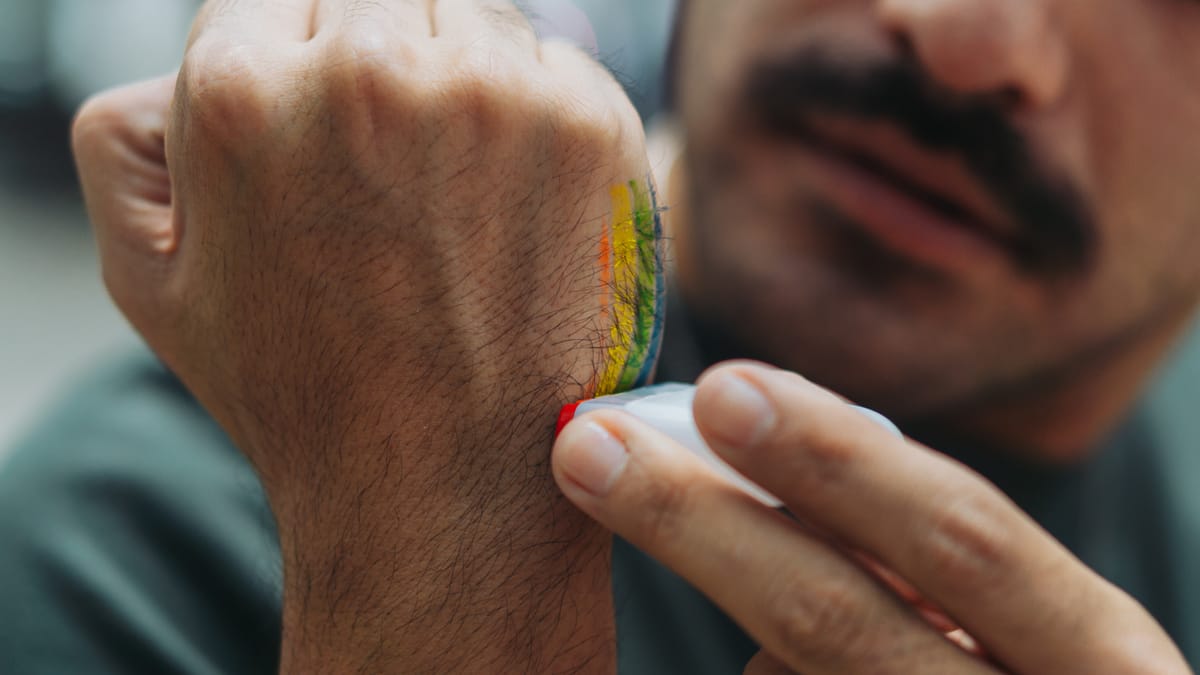If you’re feeling a grim sense of déjà vu lately, you’re not alone. For anyone who knows their history, the current wave of anti-LGBTQ+ legislation sweeping across the United States feels eerily familiar. It’s like we’ve been here before, fighting battles we thought we’d already won.
For decades, our community lived under the shadow of so-called “blue laws”—outdated rules originally about Sunday rest that morphed into weapons to police our lives. They dictated who we could love, how we could dress, and where we could gather. We fought tooth and nail to dismantle them, and we did. But now, a new moral panic is trying to drag us back into the dark.


Same Script, Different Cast
Let’s be clear: this isn’t just another “culture war” debate for cable news. As the original article from Gaydar.vip put it, this is a “coordinated legal and political assault.” The language has been updated for the 21st century, but the goal remains the same: to control, censor, and criminalize queer and trans existence.
The new playbook is slick, wrapping discrimination in the language of “parental rights,” “child protection,” and “religious freedom.” But peel back the layers, and you’ll find the same old prejudice.
“They are trying to legislate us out of existence, making it impossible to be ourselves in public,” is a sentiment echoed by activists like the ACLU’s Chase Strangio, who has been at the forefront of legal challenges against these laws.
The numbers don’t lie. The ACLU is currently tracking over 500 anti-LGBTQ+ bills in state legislatures this year alone. It’s a staggering, coordinated push aimed at rolling back decades of progress.
From Drag Bans to Classroom Censorship
The attacks are coming from all angles, creating a legal minefield for LGBTQ+ people and their families:
- Drag Under Fire: States like Tennessee and Florida have passed laws aiming to ban drag performances in public spaces. They’re being sold as protecting kids, but their vague wording threatens any public performance that challenges gender norms, essentially criminalizing queer art and expression.
- Attacks on Trans Lives: The most aggressive front is the war on transgender healthcare. Dozens of states have banned or restricted gender-affirming care for youth, and some are even trying to extend those bans to adults. In states like Texas, supportive parents have faced the nightmare of being investigated for child abuse simply for following medical guidance for their trans kids.
- The Library is Not Safe: “Don’t Say Gay” laws, which started in Florida and have since inspired copycat bills, are erasing any mention of LGBTQ+ identity from schools. Books are being pulled from shelves, and teachers are being forced into silence, fearing for their jobs if they even acknowledge that queer people exist.
History’s Ghost: The Legacy of Blue Laws
Long before these new bills, there were the old ones. For most of the 20th century, the law was not on our side. Cities had “anti-cross-dressing” ordinances, where you could be arrested for wearing clothes not deemed “appropriate” for your assigned gender—a direct attack on trans and gender-nonconforming people. Vague “public morality” and “lewdness” laws were used to justify police raids on gay bars, the very sanctuaries our community carved out for itself. Sodomy laws made our love illegal, branding us as criminals.
The current laws are a direct descendant of that legacy. They may not use the same archaic language, but they serve the same function: to tell us that our existence is immoral and needs to be legally contained.


But We’re Still Here, and We’re Fighting Back
If there’s one thing history has taught us, it’s that the LGBTQ+ community is resilient. We don’t back down. From the first brick at Stonewall to the modern-day courtroom battles, resistance is in our DNA.
And it’s working. That Tennessee drag ban? A federal judge struck it down as unconstitutional. Florida’s law met a similar fate, blocked by the courts. Legal powerhouses like Lambda Legal and the ACLU are fighting these bills across the country and winning key battles. On the ground, communities are rallying. Mutual aid networks are helping trans people access care. Parents are forming coalitions to fight back at school board meetings. Artists are refusing to be silenced.
As Kelley Robinson, president of the Human Rights Campaign, often says, this fight is about more than just laws—it’s a fight for freedom and for the very soul of the country.
“We’ve seen what happens when we’re silent, so we must fight back. We’re not asking to be tolerated. We must demand freedom to live, love, parent, perform, and exist without fear.”
The forces trying to push us back into the closet are loud and well-funded, but they’ve forgotten one crucial thing: we know how to fight. And we’re not going anywhere.
Fuel for Our Fantasies
And now for a little something to remind us what we’re fighting for—joy, connection, and unapologetic desire. Check out Marcus McNeil and Angel Elias for CockyBoys.


* Photo from gaydar.vip









